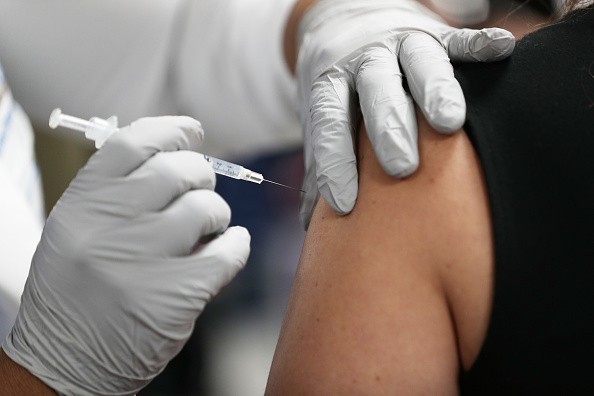FDA Officials Warn Not to Halve Covid Vaccine Doses

Two top FDA officials on Monday warned against plans to cut Covid vaccine doses in half to vaccinate more people.
FDA Commissioner Dr. Stephen Hahn and Dr. Peter Marks, head of the FDA's Center for Biologics Evaluation and Research, rejected the idea of halved Covid vaccine doses in a joint statement.
The officials believe the move to change dosage was "premature" and "not rooted solidly in the available evidence," said a report from Daily Wire.
Hahn and Marks also advised the public to continue using the authorized Covid vaccine doses and schedule.
Related Story: US Officials Consider Giving Half Doses of Moderna Vaccine to Give More People Immunity
Until then, the FDA will continue studying about reducing the number of doses, they said.
Pfizer/BioNTech's Covid-19 vaccine has to be administered in two doses 21 days apart while the Moderna shot has to be given in two doses that are 28 days apart, said a report from Fox News.
Warp Speed Adviser Claims Covid Vaccine Doses Can Be Halved
The comments came after a Sunday statement by Operation Warp Speed chief scientific adviser Moncef Slaoiu claiming half a dose would be just as effective as a full dose, reported USA Today.
Operation Warp Speed was a vaccine program established by the Trump administration aimed to speed up production and distribution of vaccines in the U.S.
"We know that for the Moderna vaccine, giving half of the dose to people between the ages of 18 and 55, two doses, half the dose, which means exactly achieving the objective of immunizing double the number of people with the doses we have," Slaoui told CBS's "Face the Nation."
He said the half dose would induce "identical immune response" as the full dose.
It was part of Slaoui's suggestions to meet the short supply of Covid vaccines. He believed it was a "more responsible approach" based on the existing facts and data.
FDA Studying Other Approaches to Address Shortage on Covid Vaccine Doses
Another approach to this problem was seen in Britain. In this approach, the second doses of the vaccine were going to be administered in a delayed manner.
"We have been following the discussions and news reports about reducing the number of doses, extending the length of time between doses, changing the dose (half-dose), or mixing and matching vaccines in order to immunize more people against Covid-19," Hahn and Marks said.
Read also : Operation Warp Speed Behind Schedule: Vaccinating Americans Could Take 10 Years at Current Pace
They recognized the merits of both theories but added that these theories should still be evaluated in clinical trials.
He said testing these trials without the right data might run a "significant risk" in the public health system. It also undermines the vaccination efforts that protect the population from Covid-19, they said.
The officials warned that shifting to a single dose regimen or giving less than the approved dose in clinical trials without understanding of the vaccine's protection is "concerning."
They noted that the available data on the vaccines are supported by two doses given at specified intervals and there have been indications that depth of immune response is associated with the duration of protection given.
So far, more than 4.2 million first doses of Covid-19 vaccines have been distributed to some 13 million people. However, the administration's initial goals were an estimated 20 million vaccinations before the end of 2020.
Subscribe to Latin Post!
Sign up for our free newsletter for the Latest coverage!
© 2026 Latin Post. All rights reserved. Do not reproduce without permission.














